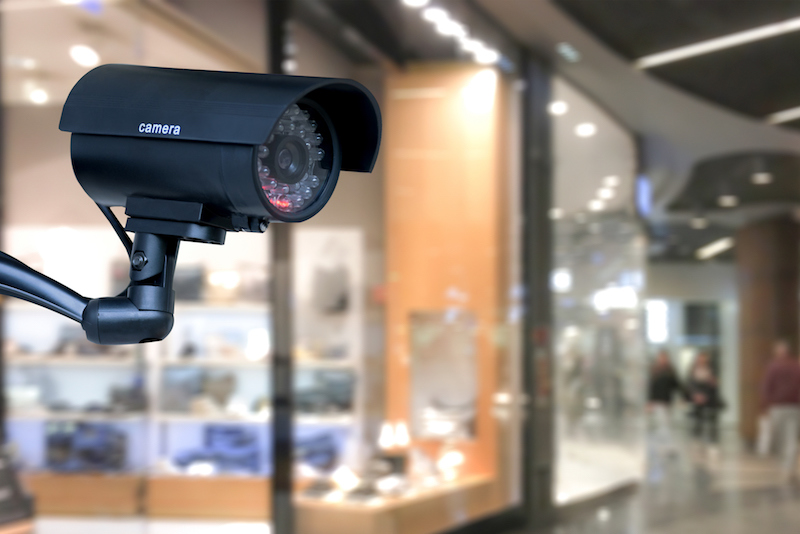
As surveillance of work activity increases, scholars argue for protecting privacy of employees.
Amazon recently patented tracking wristbands that could conceivably take surveillance at work to a new level. Although Amazon has stated that it has no intention of using its patented technology to monitor its workers, with this technology, the company could track workers’ movements throughout their warehouses and even send a vibration through the wearable device if a worker reached for the wrong item or took too long on breaks.
Employers across the United States increasingly require employees to use new monitoring technology not altogether unlike Amazon’s device.
But in a recent paper, scholars Ifeoma Ajunwa, Kate Crawford, and Jason Schultz argue that Congress needs to act to protect worker privacy. They suggest three possible pieces of legislation, including an Employee Privacy Protection Act that could “specifically limit workplace surveillance to its appropriate context—actual workplaces and actual workplace tasks.”
Although punch-card systems and video cameras have long been used by employers to monitor their employees, a host of new inventions appear to be on the rise: tracking apps, wearable fitness monitors, wellness programs, radio frequency identity tags, computer monitoring, and more. One survey cited by Ajunwa and her coauthors found that at least 66 percent of companies in the United States track Internet use, for instance.
Ajunwa and her coauthors argue that these kinds of surveillance, particularly when made known to workers, may increase risky activities, like not taking mandated breaks, or may lead to elevated anxiety and lower morale in the workplace.
Employers apparently often make participation in monitoring programs or the wearing of tracking devices a condition of employment, or they encourage participation in ways that are hard to turn down.
According to Ajunwa and her coauthors, one woman brought suit against her employer who fired her for deleting a tracking app from her phone that recorded her activity even when she was outside of work and turned off the app. Another employer reportedly would only pay health insurance premiums of workers who participated in a workplace wellness program, which made it difficult for any employee to refuse.
Ajunwa and her coauthors favor new federal legislation because existing legislation, including anti-discrimination laws covering pregnancy, age, and genetic information, along with the Health Information Portability and Accountability Act, may only restrict some small aspects of worker surveillance.
Ajunwa and her coauthors consider three alternative options. First, an omnibus federal information privacy act could support data privacy throughout society, rather than specifically protecting workers.
The European Union’s Data Directive provides an example of such a law, but Ajunwa and her coauthors feel such a broad act would not suitably protect workers.
Since most workers in the United States are “at-will” or have an employment contract that defines what constitutes just cause for termination, a broad omnibus act would allow employers to use their greater bargaining power and use standard notice-and-consent mechanisms in employment contracts to contract around privacy rights.
The authors see privacy as a more fundamental right that employers should not be able to coerce employees into giving up.
Second, Ajunwa and her coauthors argue for an Employee Privacy Protection Act. The act would include an unwaivable prohibition on surveillance outside the workplace or during off-duty time. Other employee protections, like those governing employment discrimination and worker safety, are similarly unwaivable, and Ajunwa and her coauthors argue that a protection that employers could contract around does not take into account unequal bargaining power between workers and employers.
Much like the right to a discrimination-free and safe workplace, Ajunwa and her coauthors view “data autonomy as an essential human right, and one that is part and parcel of the guarantee of an individual’s right to make a livelihood.”
Finally, Ajunwa and her coauthors propose an Employee Health Information Privacy Act as another alternative. Although considerably narrower, this option would address the specific concern about employers increasingly collecting health data about their employees without restrictions. It would clarify that all wellness programs and wearable health tracking devices are covered under existing health privacy laws.
Regardless of which option best balances the needs of employers and employees, the authors highlight the growing need for some kind of privacy protections for workers.
Traditionally unions have fought back against invasions of privacy by publicly shaming employers, but with a decline in unionization, Ajunwa and her coauthors believe workers need more stringent legal restrictions. As the emergence of technology like Amazon’s tracking wristbands suggests, employers could continue to expand their ability to surveil their workers unless legal protections are enacted.



